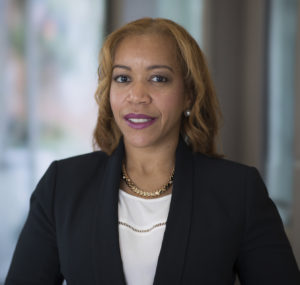Life Through Another Lens: Raven Carter
 “Life Through Another Lens” features stories of our members, in their own words, shedding light on how we experience the world and the NYJL through different lenses informed by our individual cultural identities. As we reflect on the last year, and how the pandemic forced us to change the way we live and volunteer, we invited NYJL volunteers who are healthcare heroes to share their perspectives on navigating this new reality. We admire and commend the healthcare heroes in our membership; thank you for your tireless work to save lives and safeguard the health of our city’s residents.
“Life Through Another Lens” features stories of our members, in their own words, shedding light on how we experience the world and the NYJL through different lenses informed by our individual cultural identities. As we reflect on the last year, and how the pandemic forced us to change the way we live and volunteer, we invited NYJL volunteers who are healthcare heroes to share their perspectives on navigating this new reality. We admire and commend the healthcare heroes in our membership; thank you for your tireless work to save lives and safeguard the health of our city’s residents.
This article has been lightly edited for clarity.
Raven Carter, MPS-H, MBA, FACHE, is the Assistant VP of Operations for Montefiore Medical Center Moses Campus and Children’s Hospital at Montefiore.
What brought you to the New York Junior League? I moved to New York around 11 years ago from Atlanta and didn’t know anyone. At that point in time I was doing healthcare consulting and working from home and the only time I left my apartment was when I did site visits, so I knew I needed to get involved with the community and meet more people.
What inspired you to join the healthcare sector and in what capacity do you serve? Growing up my mother was really sick and ended up passing away when I was still young. From the time I could remember, I had always been around the hospital or going to see doctors with her. It was in college when I was working as an operating room assistant in Ohio, where I first worked with healthcare consultants. Originally I thought I wanted to be a physician or surgeon, but then I found this other side of healthcare and really liked it. In my current role, I am responsible for clinical and non-clinical operations. In a typical day I could be doing anything from site visits, rounding the Emergency Department, helping with staffing, to leadership planning.
What was it like for you those first few months during COVID? What has it been like being on the frontlines? It is just amazing looking back at what we didn’t know at that time and what we didn’t have – like the constant struggle to get PPE, finding available beds, ventilators etc. We know so much more now. I remember when we got the first COVID patient and then the next day we were putting patients in conference centers. Everyday we needed more beds, we were constantly adjusting our next steps. It went from normal to insane so quickly. We are licensed for 750 adult beds and 250 pediatric beds, and we needed to find a way to double our bed capacity. Everyone in our community wanted to help and pitch in. For example, City Harvest brought groceries (pallets of food) to our staff every week, and it was things like that were really amazing during such hard times.
What was the hardest part of working during the pandemic? The amount of trauma the front line workers had to experience was one of the hardest parts of the pandemic. Seeing sickness all the time and all around you is unwavering and earth shattering. I think there is a bigger appreciation for the amount of loss and what someone goes through. Most people don’t die around you in healthcare, but when you are forced into a situation like COVID, there is a whole level of stress and trauma. Learning how to help our staff get through the pandemic and dealing with burnout was very challenging; there was no relief. You leave work where it’s stressful and patients are dying, then you come home, and it’s stressful and family members are dying. The other aspect was that you couldn’t go anywhere. Normally in a traumatic healthcare role, you do things that preserve your own spirit like getting your nails done, meeting with family, normal comforts that make you feel better and those were not available to us during the pandemic.
What changes did you experience in your work or private life? Personally, I am a bit of a germaphobe, I clean obsessively, wipe down everything, etc. so that aspect of my life didn’t change much compared to most. Professionally, we had to learn to do so many things differently in such a short time, and those lessons are the ones I will never let go. I remember handing out PPE to departments in the lobby and a woman saying a prayer to herself as she headed back to her unit. It has changed the way I am as a leader, and I now have even more empathy, love, and appreciation for our staff and community.